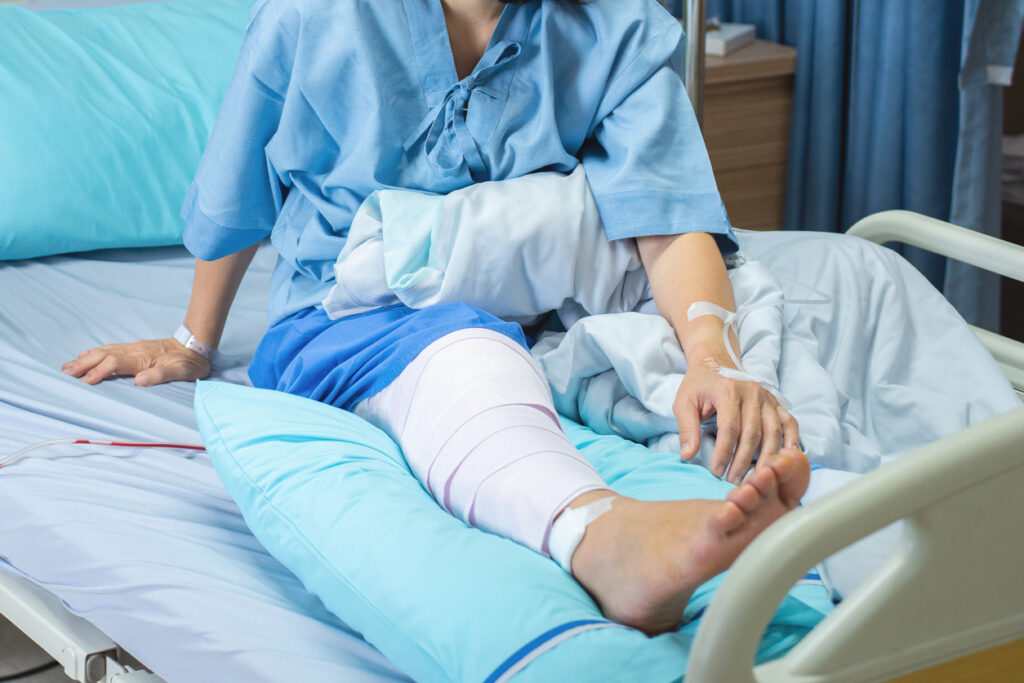
So, you’ve finally been scheduled for knee surgery. Now comes another hurdle: recovery. Did you know that what you do after your knee surgery is just as crucial as the procedure itself?
You understandably can’t wait to get it over with, but keep in mind that when it comes to your recovery, your patience, due diligence, and forethought are key – especially during the first several weeks, when 70 percent of healing takes place.
In this blog, we’ll discuss a few ways you can quickly and safely get back on your feet following your knee surgery.
Practicing Self-Care
You’ve probably heard time and time again of the importance of self-care, but it is especially imperative during your recovery.
To be your healthiest self, it helps to:
- Load up on nutritious foods, especially those that promote faster healing
- Not smoke (or quit altogether) – Smoking puts you at risk for complications
- Not drink alcohol
- Relax
- Get plenty of sleep.
Taking Your Pain Medications as Prescribed
There’s a very good reason your care team gave you pain medications, so take them as prescribed. Postoperative pain management is crucial for not only keeping you comfortable but also for helping you speed up your recovery and for minimizing your risk for potentially serious complications (e.g., blood clots).
Diligently Attending Your Physical Therapy Appointments
Show up for all of your sessions and follow all of your PT’s instructions. It can be tempting to slack off. After all, you’re still in pain and not well enough, but keep in mind that your therapist has given you exercises to do with your full recovery in mind.
Additionally, commit to doing “your homework.” The exercises you do at home are just as imperative as those you do with your therapist in the facility. Devote a specific place in your home and time to perform your exercises.
If you feel that a certain treatment or exercise isn’t helping you, is too difficult, or is exacerbating your pain (and other symptoms), let your therapist know. Inform them about the timing and severity of your symptoms as well.
Not Overworking Your Knee
While there’s no doubt exercise is crucial for your quick recovery, you could very well be backpedaling your progress by overdoing it, as you’d run the risk of putting unnecessary stress on your knee.
It is also important to wear your knee brace, avoid long flights of stairs, and avoid lifting heavy objects. Your therapist can teach you how to improve your posture and body mechanics as well as how to safely put weight on your knee.
Signs that you’ve overworked or put stress on your knee include lingering pain that can make it difficult for you to sleep at night and swelling of your entire leg. Let your therapist or orthopedic surgeon know if you notice these.
Keeping Your Incisions Dry
Keeping your dressing in place and your incisions clean and dry, especially during the first 24 hours, helps minimize your risk for infection.
If you notice the following, contact your doctor right away:
- Drainage from the incision, which can have a foul odor
- Fatigue
- Fever higher than 100°F (37.8°C), chills, and night sweats
- Increased pain and stiffness
- Redness, swelling, and warmth
Knee Surgery in Boynton Beach, FL
At Personalized Orthopedics of the Palm Beaches, our board-certified orthopedic surgeons are renowned for the unmatched patient outcomes they deliver for all types of knee surgeries. This means that whatever type of procedure you need, you can rest assured that you’re in safe hands. Our knee surgeons take all necessary measures and gladly equip patients with everything they need to know to have a successful recovery.
To book an appointment with one of our knee surgeons, call us at (561) 733-5888, or request an appointment here. We look forward to getting you back to “standing tall” and moving freely again!

